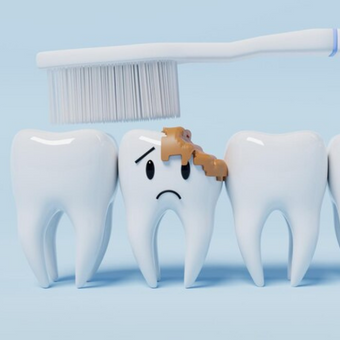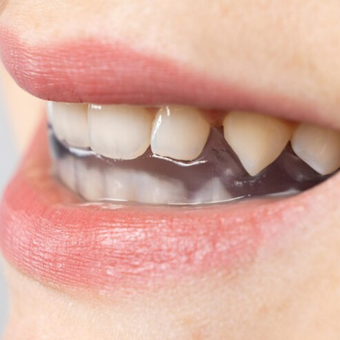Tooth decay refers to damage to the tooth. It happens when the bacteria in the mouth tends to make acid which further attacks the enamel. Tooth decay can often lead to cavities, also known as dental caries, which are holes in the tooth. If tooth decay is left untreated for some time, it can lead to serious problems and aggravation of the symptoms such as infection, pain, and also loss of teeth in numerous instances.
To the question of what causes tooth decay, the answer is that the human mouth is full of bacteria. Though some bacteria are helpful, some kinds of bacteria are harmful. The bacteria combine with food to form a soft and sticky film known as plaque. The bacteria in the plaque tend to use sugar and starch from food and drinks and thereby make acids. This acid tends to eat away the minerals on the enamel of the tooth. With time, this plaque can turn into tartar and cause loss of tooth and other damage. However, apart from this, there are also other reasons for tooth decay. Hence, to learn more about the 5 causes of tooth decay and what causes it, read this article.
Top Factors Contributing to Tooth Decay
Poor Diet
Poor diet is a primary cause behind the problem of tooth decay. A poor diet means a diet that is high in sugar and starches. The bacteria changes to plaque and the plaque turns acid from this sugar and starch and thus causes tooth decay; it is regarded as an effective answer to what causes tooth decay. Apart from food, even beverages, and also fruit juices tend to wash over the teeth in a sugary and acidic bath with each sip. Though these drinks are savored throughout the day, their frequent consumption causes the enamel to rehardening after getting exposed to the damaging acids. The signs of tooth decay through poor diet include tooth sensitivity and toothache.
Poor Dental Hygiene
Often we have heard poor dental hygiene can cause tooth decay. And yes, rumors are true in this instance. With poor dental hygiene, the chances of tooth decay increase significantly. Having inadequate brushing or flossing that often looks like not frequently brushing, thoroughly or long enough, etc., enables the food particles, along with harmful bacteria and plaque, to remain on the surface of the teeth. As they are left to linger, this becomes a constant source of damage to the enamel layer of the teeth. Thus, the stronger and more protective layer of the teeth gradually breaks down and thereby forming a large-sized cavity. To avoid the symptoms of tooth cavities in this instance, it is preferable to brush the teeth gently for two minutes twice a day using fluoride toothpaste and a soft-bristled brush.

Dry Mouth
Another cause of tooth decay is dry mouth. People always find the thought of saliva very disgusting. However, they tend to play a vital role in maintaining oral health. Not only do they help in maintaining optimum oral health but also they prevent the decay of teeth. Saliva in the mouth tends to keep it moist and thus aids in the process of breakdown and washing away the food particles effectively. Moreover, saliva also acts as a protector of teeth and strengthener against acid and plaque.
Not drinking a sufficient amount of water can cause dehydration and, thereby, dry mouth. Consequently, it also gives rise to the signs of tooth decay eventually. Furthermore, habits such as mouth breathing and smoking also cause dry mouth and also some use of certain medicines. Hence, to avoid dry mouth drink sufficient water to be hydrated, and also chewing sugar-free and ADA-approved gum helps to increase saliva production. Moreover, oral rinse to wash the mouth shall also increase saliva production. This will keep the mouth wet all the time.
Also Read: Gingivitis: Symptoms, Causes, Treatment
Untreated Medical Disease Or Condition
If asked what causes tooth decay, then another cause of tooth decay is an untreated medical disease or condition. Leaving the medical disease untreated will cause far-reaching consequences. Disorders such as sleep disorders cause snoring and apnea but also dry mouth, which can lead to tooth decay. Similarly, a disorder such as bruxism, where a person has habitual grinding of the tooth, results in the wearing down of the teeth and worn down of the protective layer enamel and causes symptoms of the cavity and tooth decay. Thus, it remains imperative to consult a doctor and treat this medical condition in its initial stages before they cause serious consequence.

Not Visiting the Dentist
Not visiting the dentist may seem like a good idea, but only for the short run. Especially for a person who feels that they cannot afford the cost of treatment or they feel less enthusiastic. But putting off a visit to the dentist tends to turn a smaller restoration into a larger, painful, and time-consuming visit later when there will be signs of tooth decay. During the routine visit to the dentist, the dentist may remove the plaque and tartar that might have accumulated on the surface of the teeth.

Thus, after the removal of plaque and tartar, there will be no bigger problems like tooth decay. However, putting off the visit to the doctor and not removing the plaque and tartar will cause tooth decay. Not only this but also by visiting the dentist, they might also recommend which areas of the mouth to give more attention to while brushing, how to brush with more effectiveness, which oral rinse to use, etc.
Hence, above, we have discussed what causes tooth decay. Above, we have discussed five factors that eventually lead to tooth decay. Thus, if any person is following any of the above-mentioned factors in their life, they should stop them immediately and take protective measures to prevent tooth decay.
